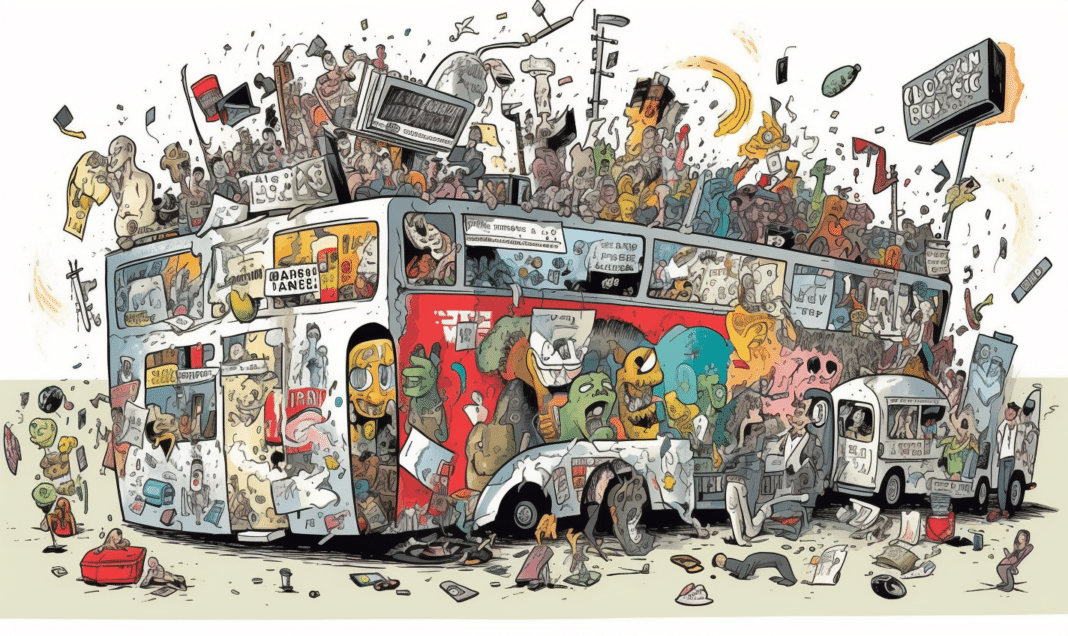As the dust settles on the collapse of Silicon Valley Bank and Signature Bank, the ad industry is left wondering if this is the beginning of the end. The fallout from the banks’ demise has had far-reaching effects on the industry, with publishers, ad-tech firms, and advertisers all feeling the tremors.
In the aftermath of the collapse, unaffected companies have been stepping in to offer relief payments to publishers and paying out existing clients early. Supply-side tech companies Kargo and Adagio have also offered to pay their publishers early to help mitigate dislocations.
However, while the immediate panic may have subsided, the long-term implications of the collapse are still being felt. Cash flow concerns have led to a greater focus on liquidity in the supply chain, with ad executives now demanding quick access to cash.
The collapse of Silicon Valley Bank has also shaken confidence in the banking sector. Previously, few had considered the origin bank account of a customer or partner to be a risk vector, but now companies are doing more due diligence to understand the organizations of their customers across the banking sector.
This shift in mindset is indicative of a wider change in the industry, with financial discipline becoming increasingly important. However, this could come at a steep price. Big banks have been overflowing with cash in the wake of Silicon Valley Bank, but they may become more cautious about how much they lend and to whom.
This caution could lead to a tightening of economies, which never bodes well for advertising. Marketers, publishers, and ad tech execs remain wary of the fallout from Silicon Valley Bank, with concerns about the potential impact on funding for fledgling minority-led digital start-ups.
Sequential liability clauses in ad contracts are also causing concern. If the company ahead of another in the flow of ad dollars doesn’t get paid, they don’t get paid. The pandemic made this all too clear for ad-tech bosses, and the collapse of Silicon Valley Bank has only heightened these concerns.
Publishers are now doing more due diligence on their vendors, with the weaker companies continuing to be weeded out from the supply chain. This has contributed to a more consolidated supply chain, with the collapse of Silicon Valley Bank adding to the ever-growing list of events causing this consolidation.
Ashwini Karandikar, EVP of media, tech and data at 4A’s, believes that the financial uncertainty and resulting volatility may result in a future slowdown in hiring or accelerated layoffs, particularly in the technology sector. He suggests that agencies should consider several precautionary measures moving forward, such as revisiting contracts and clauses with vendors, revisiting how they conduct due diligence with vendors, and ensuring that contracts and liability clauses have specific end dates. Karandikar emphasizes that it is critical for agencies to ensure that sequential liability is in place with all vendors.
Martin Sorrell, founder and executive chairman of S4 Capital, believes that the collapse of Silicon Valley Bank will place greater stress on the venture capital community to provide equity and loan capital. He believes that alternative sources of loan and equity funding will develop as a result, but acknowledges that the collapse of the bank has added to uncertainty and recessionary fears. Nevertheless, Sorrell believes that there will be no reduction of interest in investing in areas such as AI, copywriting, and media planning and buying.
Brian Wieser, principal at Madison and Wall, believes that the rapid action of the U.S. government to guarantee deposits likely limited the degree to which there might be any direct impact on sentiment among consumers and marketers in the U.S. However, he acknowledges that there could still be some risks that might yet play out, particularly with concerns around the financial system such as those seen this week with Credit Suisse. Nevertheless, Wieser does not believe that a “base case” assumption for how 2023 plays out should include negative consequences on the advertising industry because of these recent events.
Despite the long-term implications, it’s hard to predict the full impact of the collapse of Silicon Valley Bank and Signature Bank on the ad industry. However, it’s clear that the industry is facing a correction that was a long time coming.
In a fractional banking system, companies’ money is not really at the bank – it’s being loaned out to others for various lengths of time and doesn’t have to be returned until that period is up. When things go sideways and people rush to take all their money back from a bank, those same people are usually surprised to realize that it’s not actually there.
The collapse of Silicon Valley Bank was a harsh reminder of this reality. And while the industry may have weathered the storm this time, there’s a growing sense that confidence in banks is all relative.
As the industry continues to adapt to the fallout from the banks’ collapse, one thing is clear – the ad industry is in for a period of upheaval and uncertainty. However, if there’s one thing the industry is good at, it’s adapting to change. The coming months and years may be challenging, but the ad industry will likely emerge stronger and more resilient than ever before.




